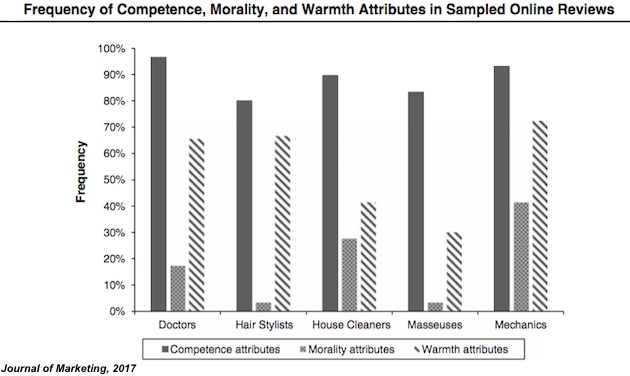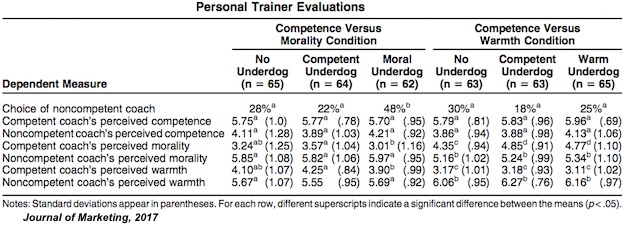Consumers generally value competence more than morality when choosing among service providers, but that effect is weakened if the less-competent provider is seen as an underdog, according to recent research published in the AMA's Journal of Marketing.
The report was based on research conducted by Amna Kirmani, Rebecca Hamilton, Debora Thompson, and Shannon Lantzy of Georgetown University's McDonough School of Business and the University of Maryland's Robert H. Smith School of Business. The researchers conducted five studies to compare the impact of competence, morality, and warmth on consumers' choices.
The first study analyzed Yelp.com reviews of businesses to see how different attributes correlate to positive evaluations.
Some 88% of the positive online reviews examined mentioned competency attributes (reliable, knowledgeable, etc.).
In contrast, only 56% of the positive online reviews mentioned warmth attributes (friendly, etc.), and just 18% mentioned morality attributes (honest, trustworthy, etc.).

In a separate study, the researchers asked 382 participants to choose between a highly competent but morally deficient personal trainer and a highly moral but less competent personal trainer.
Most participants said they would choose the more competent but less moral trainer over the less competent but more moral one.
When the researchers added information that framed the less competent trainer as an underdog (that he had come from a disadvantaged background and was successful because of passion/hard work), the proportion of study participants who chose him jumped.
However, when the more competent trainer was framed as an underdog, there was no increase in the percentage of study participants who chose him.

About the research: The report was based on research conducted by Amna Kirmani, Rebecca Hamilton, Debora Thompson, and Shannon Lantzy of Georgetown University's McDonough School of Business and the University of Maryland's Robert H. Smith School of Business. The researchers conducted five studies to compare the impact of competence, morality, and warmth on consumers' choices.




